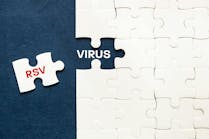Human milk is considered superior for infants with congenital heart disease (CHD), according to a research review in Advances in Neonatal Care, the official journal of the National Association of Neonatal Nurses.
CHD is the most common category of birth defects, diagnosed in an estimated 1 in 1,000 newborns and infants each year.
Infants with CHD are also at risk of feeding difficulties leading to inadequate growth and weight gain. Studies have shown that a diet of human milk can improve weight gain in infants with heart disease. Despite this, health professionals may not view human milk and breastfeeding as a high priority, said the authors.
“Human milk is a life-saving intervention for infants with CHD and health professionals must prioritize helping families to make an informed feeding decision and ensure that mothers of infants with CHD can reach their personal breastfeeding goals,” said Spatz.
The authors outline Spatz’s 10-step model to promote and protect human milk feeding and breastfeeding for infants with CHD. Recommendations include steps to ensure initiation and maintenance of the mother’s milk supply, either by breastfeeding or pumping. If necessary, pasteurized donated human milk can serve as a bridge to the mother’s own milk.





